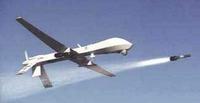-
Building disaster-relief phone apps on the fly
Researchers combine powerful new Web standards with the intuitive, graphical MIT App Inventor to aid relief workers with little programming expertise.
-
-
NIST seeks comments on structure of forensic science guidance groups
The National Institute of Standards and Technology (NIST) is seeking input on the structure of guidance groups which would promote scientific validity and reliability in forensic science.
-
-
Innovations help lighten the load for marines
The Office of Naval Research (ONR) was at the Modern Day Marine exposition last week, showcasing some of the newest technologies it has helped develop to give sailors and marines the edge. The Expeditionary Maneuver Warfare and Combating Terrorism Department at ONR highlighted its focused initiatives to lighten the load for marines, including integrated day/night vision sights, scalable body armor, and other research which will help marines out-think, out-maneuver, and out-perform the enemy.
-
-
Syria’s chemical weapons can be destroyed within nine months: experts
Weapons experts from the United States and Russia say most of Syria’s chemical weapons stockpile are kept as unweaponized liquid precursors, and thus could be neutralized in a short period of time without the risk that toxins could be stashed away by the regime for future use, or stolen by terrorists. A confidential assessment by the United States and Russia concludes that Syria’s entire arsenal could be destroyed in about nine months, assuming that Syrian officials fully cooperate with the weapons inspectors.
-
-
DARPA Young Faculty meet next generation of Army tech users
Recipients of the DARPA Young Faculty Award (YFA) visited the United States Military Academy at West Point during its first Branch Week, 10-15 September 2013. The event brought “several hundred tons of military equipment, vehicles and weapons for the academy’s spin on a college career fair,” one observer said.
-
-
Number of U.S. drone strikes in Pakistan, Yemen significantly reduced
In the past several months, the United States has reduced the number of drone strikes on terrorist targets in Pakistan and Yemen. The United States launched 117 drone strikes in Pakistan in 2010, compared to twenty-one so far this year. Representative Mike Rogers (R-Michigan), chairman of the House Permanent Select Committee on Intelligence, is concerned. “[The threat of terrorism is] not diminishing,” he said. “There have been counterterrorism changes made by the administration that have concerned us all, things that we’ve been working on for a period of months that we’re trying to work through that are very, very concerning. This is no time to retreat.”
-
-
How Sandy has changed storm warning procedures
Superstorm Sandy slammed against the U.S. Eastern Seaboard in October 2012, inundating iconic communities. Those communities have been rebuilding since then and things are almost back to normal for most. Something else, however, has had to be rebuilt as well: the structured procedures for issuing warnings. The goal is to help communities better comprehend what natural disasters will bring their doorsteps.
-
-
Al Qaeda increases efforts to defeat U.S. drones

Drone attacks have been an important part of America’s war against terrorism. These airstrikes have considerably limited the movements and operational freedom of al Qaeda operatives and other militants in Pakistan, Afghanistan, Yemen, and Somalia. Al Qaeda has been exploring strategies and experts to allow it to counter America’s drone campaign.
-
-
More Americans see their electronic equipment seized by DHS at the border
The American Civil Liberties Union (ACLU) has released details of an investigation showing how U.S. law enforcement and other agencies exceed their powers in the name of homeland security. The ACLU points to the practice of the U.S. border agents searching and seizing the electronic devices of Americans at the border. Public data shows that more Americans are having their electronic devices searched.
-
-
Conference marks opening of UMass Lowell’s new Center for Terrorism and Security Studies
Top counterterrorism and law enforcement officials and leading researchers are today (Tuesday) gathering at UMass Lowell to discuss the challenges they face in protecting the public and their work to find solutions to security threats. The event marks the opening of UMass Lowell’s new Center for Terrorism and Security Studies.
-
-
Compact aerostat offers affordable, portable surveillance solution

Columbia, Maryland-based TCOM last week unveiled its newest aerostat platform, the 12M Tactical Aerostat. The system is designed to meet the needs of soldiers and first responders who require a compact, affordable, persistent surveillance solution which can be transported anywhere, rapidly deployed, and easily retrieved.
-
-
Iran indicates willingness to rethink nuclear program in exchange for sanction relief
As part of a series of steps designed to present post-election Iran as more pragmatic, President Hassan Rouhani and his advisers indicated they would be willing to consider curbs on Iran’s nuclear program in exchange for relief from the crippling economic sanctions imposed on Iran. Some Western experts say that all these steps are more than mere cosmetic changes, while skeptics note that Obama has reached out to Iran before, with no results. Veterans of past nuclear negotiations with Iran also noted that it is likely that Rouhani’s team may not yet fully understand the kinds of concessions that the Islamic republic would be required to make to have the most painful economic sanctions lifted.
-
-
Teams show robust radio techniques at Spectrum Challenge event

Radios are used for a wide range of tasks, from the most mundane to the most critical of communications, from garage door openers to first responders to military operations. Wireless devices often inadvertently interfere with and disrupt radio communications, and in battlefield environments adversaries may intentionally jam friendly communications. To stimulate the development of radio techniques that can overcome these impediments, the agency launched its Spectrum Challenge — a competitive demonstration of robust radio technologies that seek to communicate reliably in congested and contested electromagnetic environments without direct coordination or spectrum preplanning.
-
-
Updated, expanded “Crime Scene Investigation” guide now available
Investigators and first responders can find the latest recommendations on crime scene investigations in the newly updated Crime Scene Investigation, A Guide for Law Enforcement.
-
-
Pentagon to review security clearance procedure, military base security
Defense Secretary Chuck Hagel acknowledged at a news conference on Wednesday that the procedure for granting security clearances will be looked at, and probably needed fixing, telling reporters that “a lot of red flags” about Alexis’s past behavior were missed. Among the questions will be whether more personal information — even short of information on a criminal conviction — should be looked at before a security clearance is granted, and whether security clearance reviews should be conducted more often. Hagel also announced that he had ordered a broad review of procedures at military bases around the world.
-
More headlines
The long view
Tantalizing Method to Study Cyberdeterrence
Tantalus is unlike most war games because it is experimental instead of experiential — the immersive game differs by overlapping scientific rigor and quantitative assessment methods with the experimental sciences, and experimental war gaming provides insightful data for real-world cyberattacks.
Using Drone Swarms to Fight Forest Fires
Forest fires are becoming increasingly catastrophic across the world, accelerated by climate change. Researchers are using multiple swarms of drones to tackle natural disasters like forest fires.
Testing Cutting-Edge Counter-Drone Technology
Drones have many positive applications, bad actors can use them for nefarious purposes. Two recent field demonstrations brought government, academia, and industry together to evaluate innovative counter-unmanned aircraft systems.
European Arms Imports Nearly Double, U.S. and French Exports Rise, and Russian Exports Fall Sharply
States in Europe almost doubled their imports of major arms (+94 per cent) between 2014–18 and 2019–23. The United States increased its arms exports by 17 per cent between 2014–18 and 2019–23, while Russia’s arms exports halved. Russia was for the first time the third largest arms exporter, falling just behind France.
How Climate Change Will Affect Conflict and U.S. Military Operations
“People talk about climate change as a threat multiplier,” said Karen Sudkamp, an associate director of the Infrastructure, Immigration, and Security Operations Program within the RAND Homeland Security Research Division. “But at what point do we need to start talking about the threat multiplier actually becoming a significant threat all its own?”
The Tech Apocalypse Panic is Driven by AI Boosters, Military Tacticians, and Movies
From popular films like a War Games or The Terminator to a U.S. State Department-commissioned report on the security risk of weaponized AI, there has been a tremendous amount of hand wringing and nervousness about how so-called artificial intelligence might end up destroying the world. There is one easy way to avoid a lot of this and prevent a self-inflicted doomsday: don’t give computers the capability to launch devastating weapons.
